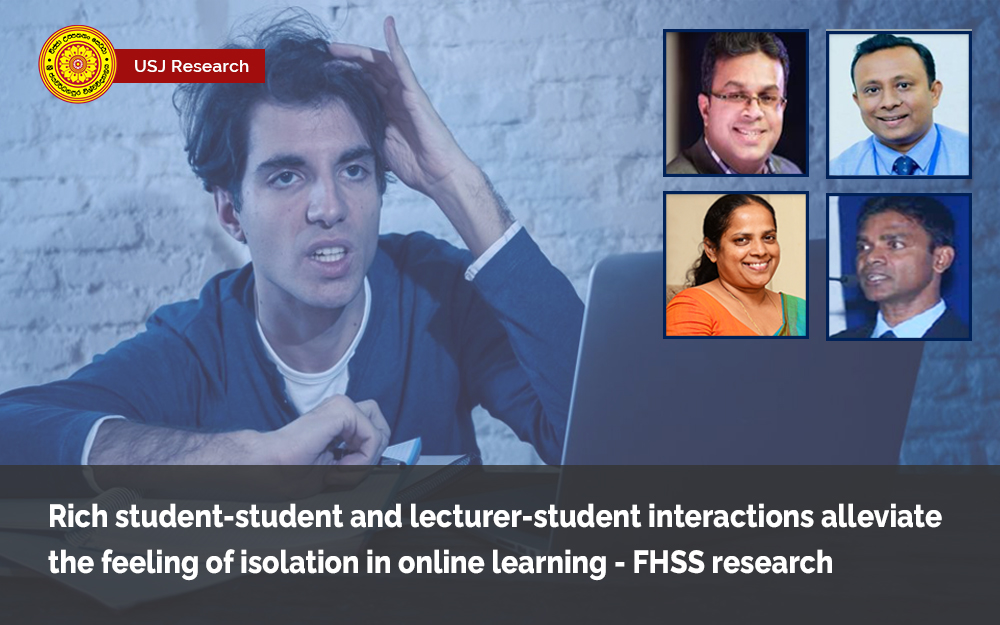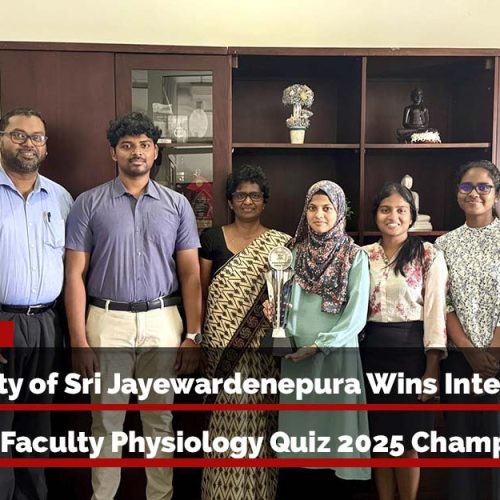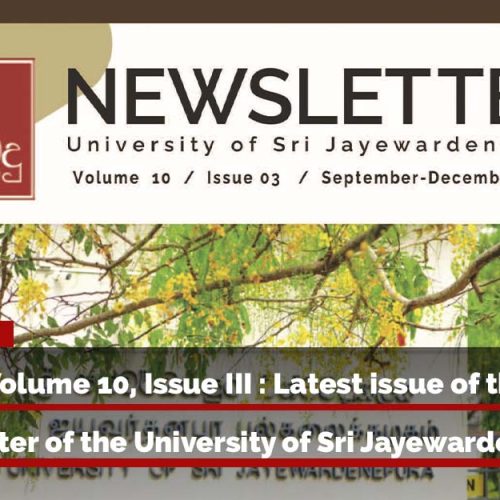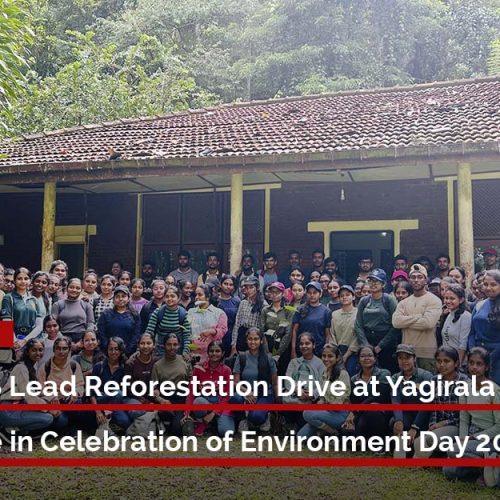Like in other contexts in the world, the transition to online learning in Sri Lankan universities during the pandemic was sudden and abrupt: both lecturers and students had a very limited time to prepare for the new mode of teaching and learning. A study was carried out to find out the student Satisfaction with Online Learning during the COVID-19 Pandemic by Dr. Sujeewa Hettiarachchi, Prof. B.W.R. Damayanthi, Prof. Shirantha Heenkenda and Prof. Lalith Ananda from the International Center for Multidisciplinary Studies, Faculty of Humanities and Social Sciences, University of Sri Jayewardenepura in collaboration with Dr. D.M.S.L.B. Dissanayake and Dr. Manjula Ranagalage from the Department of Environmental Management, Faculty of Social Sciences and Humanities, Rajarata University
“We found that Learner motivation; and teacher-student, student-student and student-content interactions had a significant impact on student satisfaction in online learning”, said Dr. Sujeewa Hettiarachchi, Director of International Center for Multidisciplinary Studies, Faculty of Humanities and Social Sciences, University of Sri Jayewardenepura. A study to explore the determinants of student satisfaction in online learning during the COVID-19 pandemic Online Learning was conducted among 1376 undergraduates enrolled in various courses in Humanities and Social sciences at three state universities in Sri Lanka. . This study was initiated by the International Center for Multidisciplinary Studies of the Faculty of Humanities and Social Sciences, University of Sri Jayewardenepura and results were published in Sustainability, a journal indexed in Web of Science and SCOPUS.
Among the three variables, learner motivation was found to exert the strongest effect on students’ satisfaction, implying the crucial role self-regulated learning—characterized by motivation—plays in online learning environments. Authors write: “This finding is not surprising given that in online learning, unlike in face-to-face learning, learners are left with the additional responsibility of their learning. As a result, self-regulated learning plays an important role in its success. While motivation holds the key in self-regulated learning, self-regulated learners, in contrast to others, tend to develop an independent learning style, display self-directed behavior and have an internal locus of control of their learning. Thus, online learners are generally assumed to be self-motivated, and this makes them naturally become more satisfied with their learning.”
Furthermore, as expected, the study found that various challenges that students face in their online learning decrease their satisfaction. Nevertheless, the mere existence of challenges may not always hamper student motivation in online education as distance learners are naturally more self-resilient and motivated.
Finally, the study found that poor interaction (teacher-student; student-student; student-content) leads to decreased student satisfaction in online learning: “Even though interaction is a determinant of student success and satisfaction in any mode of learning, it seems to have extra significance in online learning. This may be because rich student-student and lecturer-student interaction can alleviate the feeling of isolation that many students are supposed to experience in online learning spaces”, said Dr. Sujeewa Hettiarachchi.
The article can be accessed using the following link:
Read more Research Articles :
USJ and USDA-ARS collaborative research team discovered new Pathogenic Fungal species
Biofuel from Cyanobacteria and paper waste – The Centre for Water Quality and Algae Research











